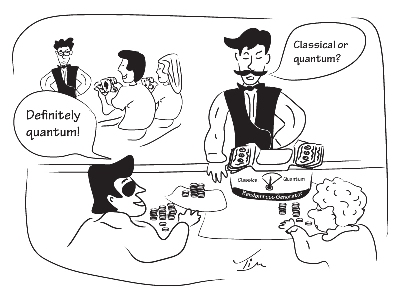Stephanie Wehner from the Centre for Quantum Technologies together with Omar Fawzi from McGill University, Canada, and Mario Berta from ETH Zurich, Switzerland, have explored a new method to create randomness, hypothesizing quantum analogues of classical randomness extractors for the first time.

The findings have already helped in the advancement of the ‘noisy-storage model’ proposed by Stephanie to ensure security for tasks such as secure identification wherein two parties who do not have faith on each other want to jointly find a solution for a problem. The new research relates this model’s security to the quantum capacity.
Quantum randomness is one of the renowned aspects of quantum theory has been explored in several experiments since its introduction in the early 19th Century. Stephanie and collaborators believe that it is possible to perform some measurements on a closed system of quantum bits (qubits) to extort randomness without knowing the quantum system’s exact state. They also originate basic limits on the randomness gettable, which relies on the quantum entanglement of the observer with the system. The limits include the extraction of the optimal amount of randomness for a given initial randomness invested.
For real-world applications, Stephanie points out that the observer that do not entangle with the measurement device is essential to depend on for randomness instead of inadequate knowledge to be assumed in the case of classical system. For entanglement, the observer may need a quantum interplay with the measured quantum system and a quantum memory. They may able to estimate the random bits only if they break into the lab to create the entanglement prior to the measurements.
Stephanie is also believed that quantum to classical randomness extractors can provide support to new hypothetical insights. Classical randomness extractors are the core in classical theoretical computer science and are associated with ideas like complexity and error correcting codes.